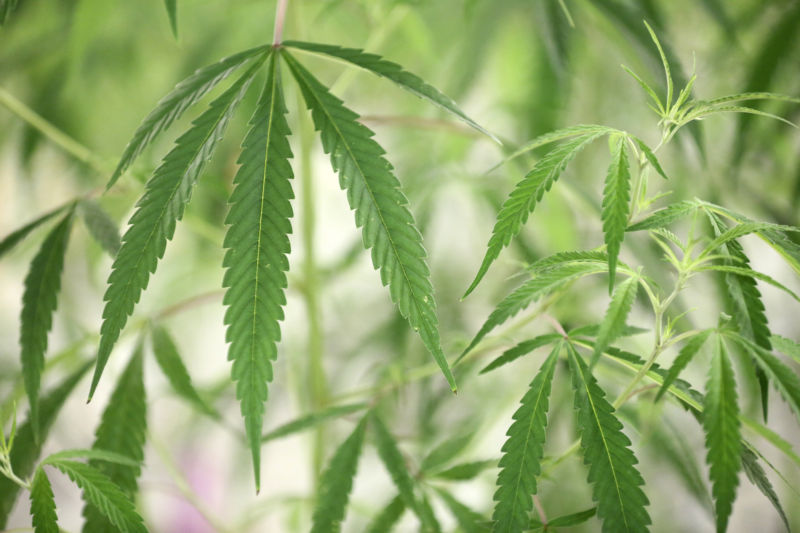
The US Drug Enforcement Administration is preparing to reclassify marijuana to a lower-risk drug category, a major federal policy change that is in line with recommendations from the US health department last year. The upcoming move was first reported by the Associated Press on Tuesday afternoon and has since been confirmed by several other outlets.
The DEA currently designates marijuana as a Schedule 1 drug, defined as drugs "with no currently accepted medical use and a high potential for abuse." It puts marijuana in league with LSD and heroin. According to the reports today, the DEA is moving to reclassify it as a Schedule 3 drug, defined as having "a moderate to low potential for physical and psychological dependence." The move would place marijuana in the ranks of ketamine, testosterone, and products containing less than 90 milligrams of codeine.
Marijuana's rescheduling would be a nod to its potential medical benefits and would shift federal policy in line with many states. To date, 38 states have already legalized medical marijuana.
In August, the Department of Health and Human Services advised the DEA to move marijuana from Schedule 1 to Schedule 3 based on a review of data by the Food and Drug Administration. The recommendation came after the FDA, in August, granted the first approval of a marijuana-based drug. The drug, Epidiolex (cannabidiol), is approved to treat rare and severe forms of epilepsy. The approval was expected to spur the DEA to downgrade marijuana's scheduling, though some had predicted it would have occurred earlier. Independent expert advisors for the FDA voted unanimously in favor of approval, convinced by data from three high-quality clinical trials that indicated benefits and a "negligible abuse potential."
AdvertisementThe shift may have a limited effect on consumers in states that have already eased access to marijuana. In addition to the 38 states with medical marijuana access, 24 states have legalized recreational use. But, as a Schedule 3 drug, marijuana would still be regulated by the DEA. The Associated Press notes that the rule change means that roughly 15,000 dispensaries would need to register with the DEA, much like pharmacies, and follow strict reporting requirements.
One area that will clearly benefit from the change is scientific research on marijuana's effects. Many academic scientists are federally funded and, as such, they must follow federal regulations. Researching a Schedule 1 drug carries extensive restrictions and rules, even for researchers in states where marijuana is legalized. A lower scheduling will allow researchers better access to conduct long-awaited studies.
It's unclear exactly when the move will be announced and finalized. The DEA must get sign-off from the White House Office of Management and Budget (OMB) before proceeding. A source for NBC News said Attorney General Merrick Garland may submit the rescheduling to the OMB as early as Tuesday afternoon. After that, the DEA will open a public comment period before it can finalize the rule.
The US Department of Justice told several outlets that it "continues to work on this rule. We have no further comment at this time."



















